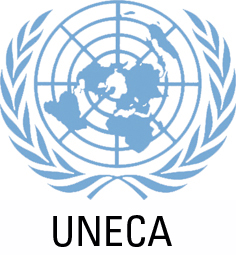Focal point
Location
P.O. Box 3001
Addis Ababa, Ethiopia
Established by the Economic and Social Council (ECOSOC) of the United Nations (UN) in 1958 as one of the UN's five regional commissions, ECA's mandate is to promote the economic and social development of its member States, foster intra-regional integration, and promote international cooperation for Africa's development.
Made up of 54 member States, and playing a dual role as a regional arm of the UN and as a key component of the African institutional landscape, ECA is well positioned to make unique contributions to address the Continent’s development challenges.
ECA’s thematic areas of focus are as follows:
- Macroeconomic Policy
- Regional Integration and Trade
- Social Development
- Natural Resources
- Innovation and Technology
- Gender
- Governance
Members:
Resources
Displaying 441 - 445 of 872Improvement of statistics on agriculture producer prices
This paper focuses on the improvement of statistics on agriculture producer prices. The agricultural sector is even more vital in Africa where the majority of the population live and depend on this sector and its improvement is specially essential, in order to improve the socio-economic conditions of the majority of the African population.
Measures for the improvement of women's land holding and land rights
The problem of low productivity is fundamental to the long-term deteriorating trend in agricultural and per capita food production that has characterized African agriculture during the past decades. Widespread desertification and degradation of African farmlands and the present heavy dependence on natural rainfall which are some of the causes of low productivity, reflect the inability of African member States to sufficiently invest in and develop technologies and farming systems suitable for adoption by small farmers.
Popularization and application of available and suitable technologies to increase food production in Africa
The population of African countries is likely to double over the next twenty years. How will these nations be able to feed themselves if a substantial part of their food has to be imported, especially as most of these countries also have to import their energy? This is the real of challenge facing African countries at the close of this century.
Popularization and application of available and suitable technologies to increase food production in Africa
The population of African countries is likely to double over the next twenty years. How will these nations be able to feed themselves if a substantial part of their food has to be imported, especially as most of these countries also have to import their energy? This is the real of challenge facing African countries at the close of this century.
Report to the Conference of Ministers of human resources requirements for agricultural development in Africa
The objective of this report Is to take a closer look at the first of these two important issues underlying the human resources problem within the agriculture sector, and to suggest a strategy that would lead to a programme of action for guiding member states in their individual and collective efforts to achieving food self-sufficiency in the years ahead. The report begins with an over-view of the manpower situation and requirements within the sector by 1980 and what that picture could look like by the year 2000.


